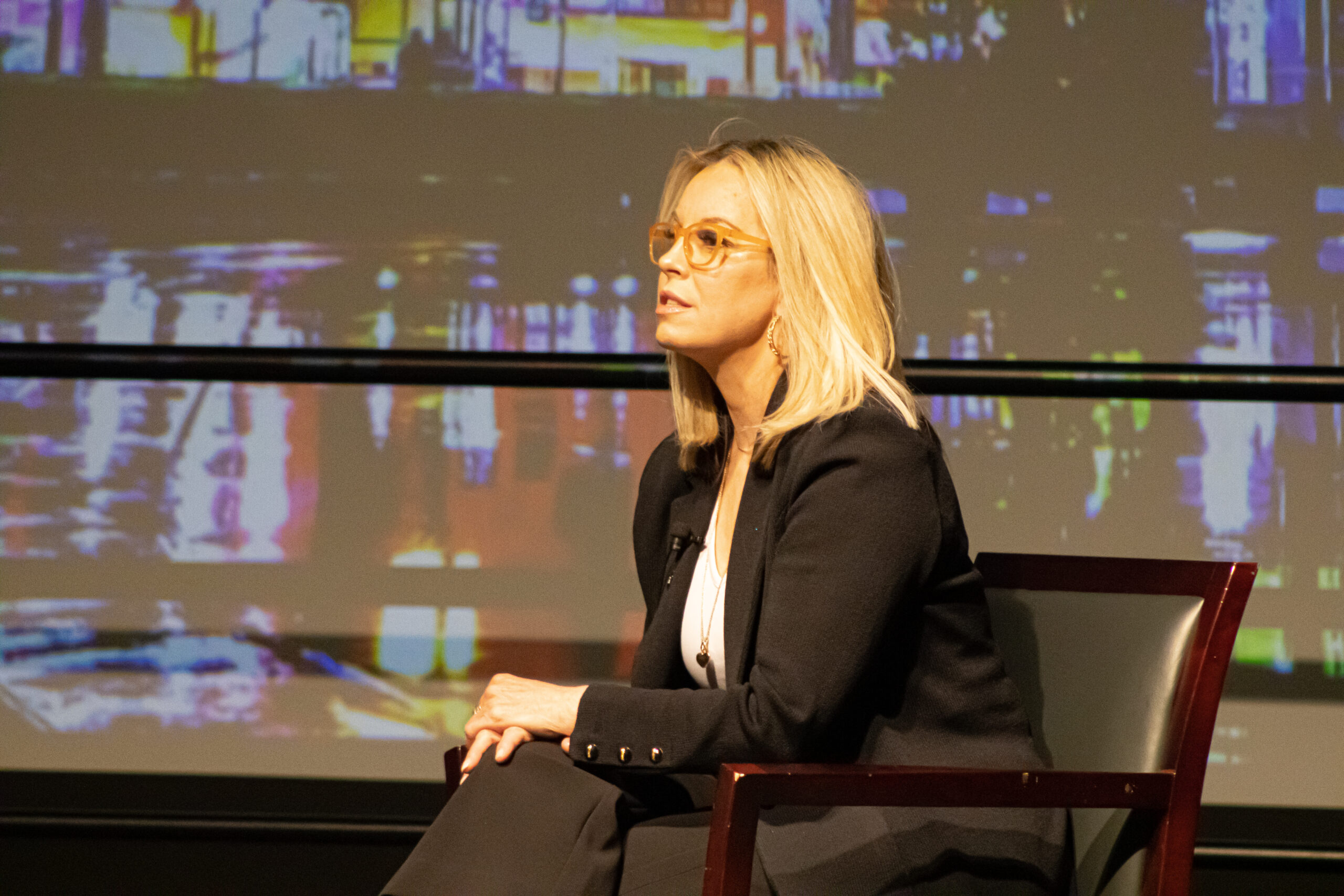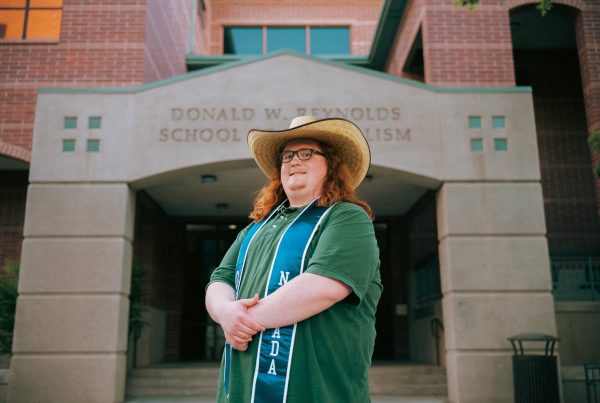Originally posted in The Nevada Sagebrush’s September 2023 digital issue.
Hillary Schieve, the mayor of Reno gave a moderated discussion about her advocacy for mental health, affordable housing and public safety. She also hosted a live question and answer session and a meet and greet in the Joe Crowley Student Union’s Milt Glick Ballrooms on Sept. 21. The discussion was part of the Associated Students of UNR’s Department of Government Affairs’ Wolf Pack Talks.
Mental health is one of Schieve’s most prominent campaign goals. Schieve shed some light on why it was so important, especially for young adults and college students.
“Forty-nine percent of people ages 18 to 24, right now … in the United States are saying that they’re experiencing anxiety and depression,” Schieve said. “[And yet] mental health comes with such a massive stigma, and people do not want to talk about it to this extent.”
Schieve always had plans of building a mental health 24/7 crisis center, and after seven years of work, the plan is well underway.
“When I talk about the red tape, it’s totally real, unfortunately. But it’s been seven years since I’ve been working with the state and the county to provide a 24/7 mental health crisis center because our [emergency rooms] are not equipped to handle the crisis,” Schieve said. “That’s where you fix broken bones, not broken brains.”
The idea came from Arizona’s Crisis System, which is nationally recognized for its success in offering 24/7 mobile teams with mental health training and even local crisis telephone lines. Schieve said they wanted to take this successful idea and adapt it to the city of Reno.
Schieve said Steve Sisolak, the previous governor of Nevada, donated the building for the crisis center and Joe Lombardo, the current governor of Nevada is finishing that process off. She explained other agencies, like nonprofits, are working in mental health and are typically isolated.
Creating a center where all mental health organizations can exist together collaborate on issues allows them to all report to the same system about the city’s mental health struggles.
Schieve said to make the crisis center prepared to provide services, there are adjustments needed to be made to make sure that people are getting proper and sustainable treatment, but they are finally on track to see it’s opening soon.
“I’m hoping that we get an opening in January,” Schieve said. “Some people will have insurance, some people won’t, but we will help sign them up on Medicaid to make sure that they can be treated. That’s super important.”
Schieve has a personal mission with the initiative after she lost her sister and brother to their battles with mental health a few years ago.
“My brother was so great when he was taking his medication. But when he was off of it, it was really challenging,” Schieve said. “So that’s, you know, part of why this center is really important.”
The plan is to pair individuals with caseworkers to help encourage them to continue to take their medication.
Now that they have the building, they are going through the list of things the state and hospital need, making adjustments to get it ready to go. Schieve said she’s trying not to “hold [her] breath” but she’s hoping for a January opening.
Once opened, anyone will be able to enter the center for help with mental health, which is something she’s very proud of.
“[In Reno’s future] I’d love to see, walk-in mental health centers [that] anyone could walk in at any moment’s notice,” Schieve said.
If you or someone you love is in immediate danger please call 911. If you or someone you love is struggling with mental health, please call the suicide and crisis lifeline at 9-8-8 which is available 24 hours.
Jaedyn Young can be reached at jaedynyoung@sagebrush.unr.edu or on Twitter @jaedyn_young3.









